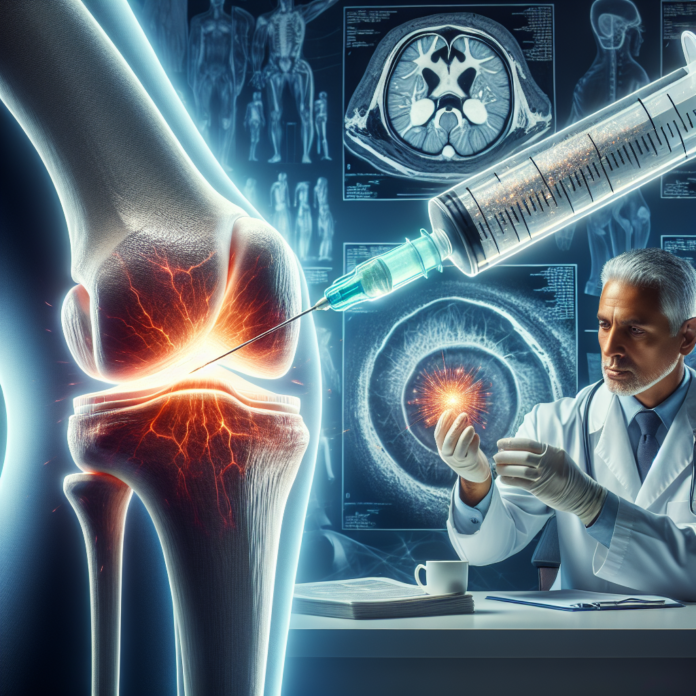When it comes to the delicate structure of the knee, the meniscus—a c-shaped cartilage that acts as both a shock absorber and stabilizer—is often subject to tears, mainly due to its lack of a significant blood supply. These tears typically don’t heal on their own, leading many to consider surgical options. However, the question arises: can alternative treatments such as peptides, specifically BPC 157, offer a non-surgical route to healing? Dr. David Guyer, a triple board-certified orthopedic surgeon and expert in sports medicine and regenerative therapies, dives into this query in his latest video from the “Ask The Doctor” series. While peptides like BPC 157 are gaining attention for their potential benefits, the FDA still classifies them as experimental. Dr. Guyer explores the nuances of these treatments, their regenerative claims, and whether they might genuinely offer an alternative solution for those seeking to avoid surgery. Join us as we delve into the potential and limitations of peptides in orthopedic healing, guided by Dr. Guyer’s expertise.
The Role of the Meniscus and Traditional Healing Challenges
A meniscus tear is a common injury that affects a critical structure within the knee joint. The meniscus is a c-shaped piece of cartilage that provides cushioning and stability to the knee. Unfortunately, due to its limited blood supply, meniscus tears often do not heal on their own, prompting the need for surgical interventions in many cases. This has led to a growing interest in alternative treatments, such as peptides like BPC 157, which are touted as having potential healing and regenerative properties. Yet, can these peptides truly offer a viable, non-surgical solution for meniscus tears?
Understanding Peptides and Their Potential
Dr. David Guyer, with his extensive background in orthopedics, sports medicine, and regenerative therapies, brings clarity to this subject. He emphasizes that BPC 157 is a peptide derived from the gastric juices of the body and can be synthesized for use in medical treatments. While they are considered experimental by the FDA and are not mainstream treatments, peptides have gained a foothold in discussions about potential regenerative therapies. The notion is appealing—stimulating the body’s natural healing processes to repair damage without the invasiveness of surgery.
Limitations of Peptide Treatments
However, Dr. Guyer provides a grounded perspective, pointing out the current limitations in the use of peptides like BPC 157 for meniscus tears. He explains that for a peptide to be effective in healing a meniscus tear, it would need to reach the intraarticular space, the interior of the knee joint where the meniscus is located. Studies supporting the efficacy of BPC 157 in directly regenerating meniscal tissue are scarce, and the means of peptide delivery—whether through capsules or subcutaneous injections—present challenges in effectiveness.
Current Use and Future of Regenerative Medicine
While there may be potential for peptides to function as pain relievers, thus providing symptomatic relief, expecting them to facilitate the healing of meniscal tears is overly optimistic at this stage. Dr. Guyer admits skepticism, not out of dismissal of peptide research, but due to the current lack of robust clinical evidence. Until more conclusive research is available, BPC 157 should be viewed with caution, particularly in the context of treating orthopedic injuries.
Exploring Alternative Therapies
The landscape of regenerative medicine is vast, and peptides represent just one frontier. Dr. Guyer briefly mentions other regenerative approaches such as exosome therapy, stem cells, and platelet-rich plasma (PRP). These treatments are part of a broader discussion on how the body might be prompted to heal itself in ways that traditional medicine has yet to fully embrace. Each has its own base of research and clinical use, often in combination with other treatments to optimize results.
Conclusion and Consultation
Ultimately, those considering alternative therapies for meniscus tears must weigh their options carefully. Engaging in a detailed discussion with a healthcare provider about the risks, benefits, and current research on BPC 157 is vital. Just as important is managing expectations about what current treatments can achieve and where future innovations might lead.
Dr. Guyer encourages ongoing dialogue between patients and healthcare providers, highlighting the importance of personalized medicine where treatments are tailored to individual needs and conditions. The field of regenerative medicine is continually evolving, and staying informed is crucial for both practitioners and patients.
Dr. Guyer’s video and insights serve as a reminder that while scientific exploration into alternatives like peptides is exciting, it is also necessary to remain grounded in evidence-based practices. As the research progresses, the hope is that such innovations will offer safer and more effective treatments for conditions like meniscus tears, reducing reliance on surgical interventions where possible.
For those dealing with a meniscus tear or similar orthopedic injury, Dr. Guyer offers an invitation to consult and explore the myriad of treatment possibilities beyond surgery. His belief in holistic health approaches emphasizes not merely injury management but enhancing overall quality of life, which is an ethos many in the medical field are coming to share.
In conclusion, as promising as peptides like BPC 157 appear, they currently remain an unproven treatment modality for meniscus tears. Understanding the current landscape of regenerative medicine is vital for anyone considering such alternatives, and collaborations with knowledgeable practitioners can provide the best pathway forward.
